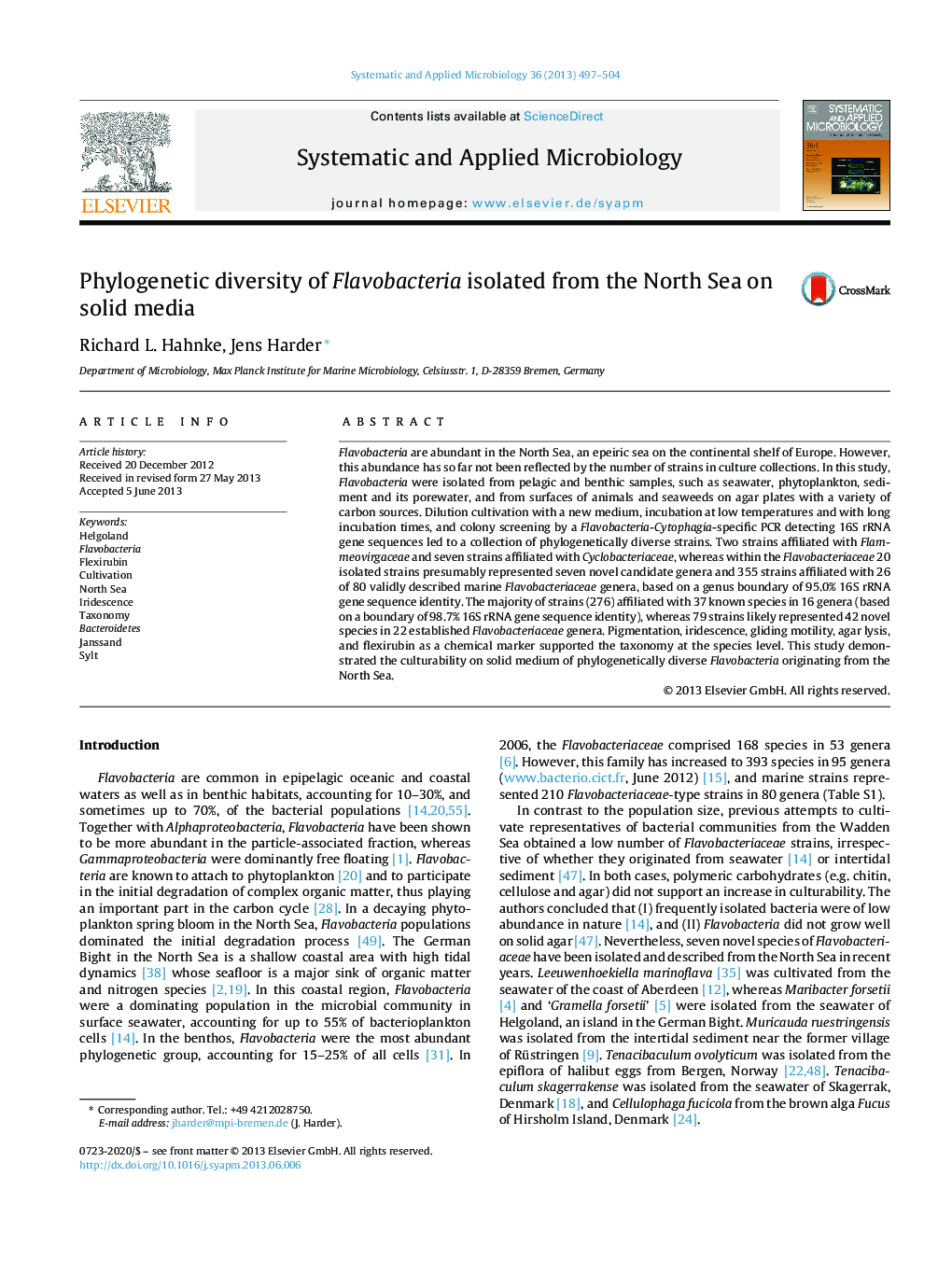| Article ID | Journal | Published Year | Pages | File Type |
|---|---|---|---|---|
| 2063748 | Systematic and Applied Microbiology | 2013 | 8 Pages |
Flavobacteria are abundant in the North Sea, an epeiric sea on the continental shelf of Europe. However, this abundance has so far not been reflected by the number of strains in culture collections. In this study, Flavobacteria were isolated from pelagic and benthic samples, such as seawater, phytoplankton, sediment and its porewater, and from surfaces of animals and seaweeds on agar plates with a variety of carbon sources. Dilution cultivation with a new medium, incubation at low temperatures and with long incubation times, and colony screening by a Flavobacteria-Cytophagia-specific PCR detecting 16S rRNA gene sequences led to a collection of phylogenetically diverse strains. Two strains affiliated with Flammeovirgaceae and seven strains affiliated with Cyclobacteriaceae, whereas within the Flavobacteriaceae 20 isolated strains presumably represented seven novel candidate genera and 355 strains affiliated with 26 of 80 validly described marine Flavobacteriaceae genera, based on a genus boundary of 95.0% 16S rRNA gene sequence identity. The majority of strains (276) affiliated with 37 known species in 16 genera (based on a boundary of 98.7% 16S rRNA gene sequence identity), whereas 79 strains likely represented 42 novel species in 22 established Flavobacteriaceae genera. Pigmentation, iridescence, gliding motility, agar lysis, and flexirubin as a chemical marker supported the taxonomy at the species level. This study demonstrated the culturability on solid medium of phylogenetically diverse Flavobacteria originating from the North Sea.
